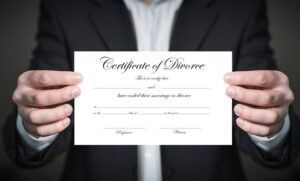
Strategic Gifting can Minimize Tax Liabilities for High Net-Worth Families
High-net-worth individuals and families often hold stocks, real estate, or other assets that have significantly increased in value over time. Selling these assets outright can trigger capital gains taxes, reducing the asset’s net value. However, strategic gifting—whether to family members or charities—can minimize tax liabilities for high net-worth families, while ensuring that wealth is transferred efficiently.
By understanding gift tax rules, charitable giving strategies and estate planning considerations, individuals can preserve more of their wealth while benefiting loved ones and the causes they care about.
Why Gifting Appreciated Assets Makes Sense
Gifting highly appreciated assets offers several financial advantages:
- Reduces estate size – Helps minimize estate taxes by transferring wealth while living.
- Avoids or reduces capital gains taxes – Capital gains taxes may be eliminated or deferred if an asset is gifted instead of sold.
- Supports charitable causes – Donating appreciated assets directly to charities maximizes deductions, while providing financial support to nonprofits.
- Leverages lower tax brackets – Gifting to beneficiaries in lower income tax brackets allows them to sell the asset with reduced capital gains exposure.
Careful planning ensures that these benefits are fully realized while complying with tax laws and avoiding unintended financial consequences.
Understanding Gift Tax Rules and Exemptions
The IRS imposes gift tax rules on high-value asset transfers. However, several exemptions allow for tax-free gifting.
Annual Gift Tax Exclusion
In 2025, individuals can gift up to $19,000 per recipient per year without triggering gift tax reporting. Married couples can combine their exclusions, allowing up to $38,000 per couple annually.
Gifting within these limits enables gradual wealth transfer without reducing the federal lifetime estate and gift tax exemption, which currently stands at $13.61 million per individual (subject to legislative changes).
Lifetime Gift and Estate Tax Exemption
Gifts exceeding the annual limit count toward an individual’s lifetime exemption, reducing the amount that can be passed estate-tax-free upon death. However, gifting assets while living can significantly reduce estate tax liabilities for individuals with estates exceeding the exemption amount.
Step-Up in Basis Consideration
Gifting appreciated assets can result in capital gains tax consequences for the recipient. Unlike assets inherited at death, which receive a step-up based on fair market value, gifted assets retain the donor’s original purchase price (basis).
For example:
- If a parent purchased stock at $50,000 and it is now worth $250,000, gifting it to an heir would pass on the original cost basis of $50,000.
- If the recipient sells the stock, they will owe capital gains tax on the $200,000 gain.
For individuals concerned about minimizing tax burdens for heirs, gifting certain assets while retaining others for inheritance may be the most tax-efficient strategy.
Charitable Giving Strategies for Appreciated Assets
Donating Stock Instead of Cash
One of the most tax-efficient ways to support a nonprofit is by donating appreciated securities directly. Doing so:
- Avoids capital gains taxes that would apply if the stock were sold before donating.
- Provides a full charitable deduction for the fair market value of the asset.
- Maximizes the impact of donations, as the charity receives the full value without tax deductions.
For example, donating $100,000 in appreciated stock instead of selling it and donating cash could save $20,000 or more in capital gains taxes.
Charitable Remainder Trusts (CRTs)
A Charitable Remainder Trust (CRT) allows individuals to donate highly appreciated assets, while retaining an income stream during their lifetime. This strategy:
- Defers capital gains taxes, allowing the trust to reinvest the entire asset value.
- Provides a charitable tax deduction based on the present value of the donation.
- Supports charities, while ensuring a lifetime income stream for the donor or beneficiaries.
CRTs are ideal for those who wish to benefit from their assets while making a long-term charitable impact.
Donor-Advised Funds (DAFs)
A Donor-Advised Fund (DAF) allows individuals to contribute appreciated assets, receive an immediate tax deduction and distribute funds to charities over time. DAFs provide:
- Flexibility in choosing which charities to support over multiple years.
- Tax-efficient giving by allowing donations to grow tax-free before distribution.
- Simplified record-keeping for those making multiple charitable contributions.
DAFs are effective for individuals who want to maximize tax savings, while maintaining control over charitable donations.
Estate Planning Considerations When Gifting Assets
Gifting appreciated assets plays a key role in estate planning, reducing taxable estate size and ensuring smooth wealth transfer. An estate planning attorney can help:
- Structure gifts to minimize tax burdens for both the donor and recipient.
- Determine whether assets should be gifted outright or placed in a trust for greater protection.
- Balance lifetime gifting with posthumous wealth transfer strategies.
For individuals with high-value estates, integrating gifting into a broader estate plan ensures optimal tax efficiency and legacy preservation.
Optimize Your Gifting Strategy with Estate Planning
Gifting highly appreciated assets requires careful planning to balance tax efficiency, wealth preservation and charitable giving. Whether you are donating assets, transferring wealth to family, or incorporating gifting into your estate plan, strategic gifting can minimize tax liabilities for high net-worth families. If you would like to learn more about gifting, please visit our previous posts.
Reference: Charles Schwab (December 13, 2024) “Tax-Smart Ways to Gift Highly Appreciated Assets”
Photo by August de Richelieu















